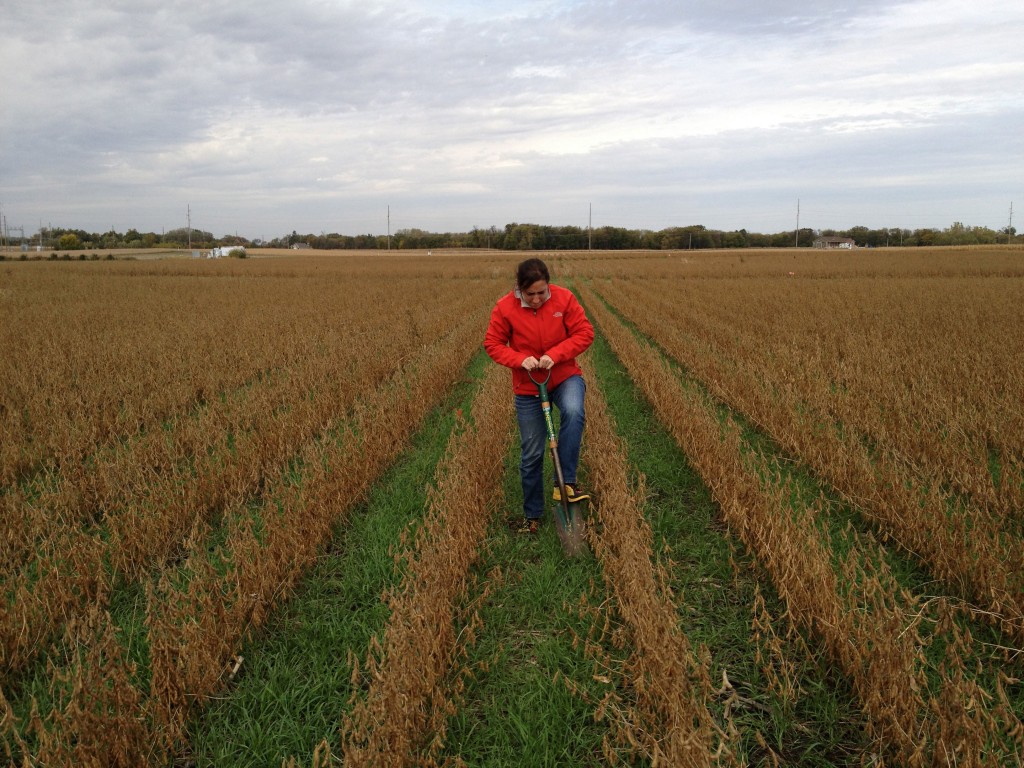I am using a modeling approach to answer questions about the ability of cover crops to mitigate climate risks, as described in a recent video produced in collaboration with the Sustainable Corn Project communication team.
The conservation community of researchers, farmers and practitioners champion the use of cover crops in the Midwest for numerous environmental benefits: reducing water pollution, nutrient recycling, weed suppression, erosion prevention, providing livestock feed, you name it. We also hear anecdotes about cover crops protecting the soil in periods of heavy rain, but what about cover crops in the context of climate change?  This question is a priority for researchers on the Sustainable Corn project. Climate scientists have documented increases in precipitation intensity over the last several decades in the Midwest, and they anticipate even more in the future. So, can cover crops help mitigate those climate risks? Continue reading
This question is a priority for researchers on the Sustainable Corn project. Climate scientists have documented increases in precipitation intensity over the last several decades in the Midwest, and they anticipate even more in the future. So, can cover crops help mitigate those climate risks? Continue reading
